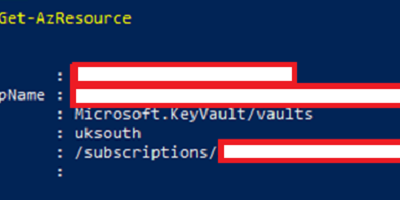A Business Continuity Plan (BCP) is a strategic playbook created to help an organisation maintain or quickly resume business functions in the face of disruption. (Pratt, Tittel, Lindros, 2023) Be honest now. Who really has a truly effective Business Continuity Plan in 2024? Not the compliance-driven plan that has not been reviewed or tested properly for years. Or the “oh no, this supplier questionnaire is asking for a BCP… quick, write one” plan that won’t be much help in reality. Who has an effective plan that will be genuinely useful to their organisation in a time of crisis? Not many organisations do and it’s understandable. We are not aiming to criticise anybody's hard work here. We get it. To put it mildly, the sheer amount of items on any organisation's to-do list combined with budget and resource constraints often lead to things like Business Continuity Planning being...
JUMPSEC LABS
The JUMPSEC Lab is a place where the technical team get creative and showcase their latest security research, publications, interesting news and general thoughts! We love what we do and are passionate about security, with some great upcoming projects planned, bookmark our site and stick around to see what we are working on.
How to Handle Development Projects in a Pentest Company
If you are a pentester you probably never really think about programming. Instead you are testing what others have developed. However, every now and then a quick python or bash...
How Cloud Migration is Affecting AppSec – A Red Teamer’s Perspective
Introduction I’ve recently spoken at several conferences about the changes that are underway within red teaming as a result of cloud migration. My team and I have been delivering...
shad0w
Post exploitation is large part of a red team engagement. While many organisations begin to mature and start to deploy a range of sophisticated Endpoint Detection & Response solutions (EDR) onto their networks, it requires us, as attackers to also mature. We need to upgrade our arsenal to give us the capabilities to successfully operate on their networks. That is why today, I am releasing shad0w.
shad0w is a post exploitation framework which is designed to operate covertly on such networks, providing the operator with much greater control over their engagements. Over future blog posts I will go into greater detail on the intricacies of how shad0w works. This blog post will, therefore, serve as an introduction into the usage and features that shad0w has to offer.
A Defender’s Guide For Rootkit Detection: Episode 1 – Kernel Drivers
Recently JUMPSEC’s youngest red team researcher @_batsec_ raised the bar once more using rootkit techniques to universally evade Sysmon.
Bypassing Antivirus with Golang – Gopher it!
In this blog post, we’re going to detail a cool little trick we came across on how to bypass most antivirus products to get a Metepreter reverse shell on a target host. This all started when we came across a Github repository written in Golang, which on execution could inject shellcode into running processes. By simply generating a payload with msfvenom we tested it and found that it was easily...
Enhanced logging to detect common attacks on Active Directory– Part 1
In this blog post I am going to tackle the topic of detecting common attacks using Active Directory logs. It is important to understand the power of data in InfoSec world. Too much data means you’ll be spending rest of the week digging through millions of log entries to try and figure out what the adversary was up to. You can set filters to help you through this, however it can get...
Short introduction to Network Forensics and Indicators of Compromise (IoC)
“Indicator of compromise (IOC) in computer forensics is an artifact observed on a network or in an operating system that with high confidence indicates a computer intrusion. Typical IOCs are virus signatures and IP addresses, MD5 hashes of malware files or URLs or domain names of botnet command and control servers. After IOCs have been identified in a process of incident response and computer...
CVE 2015-7547 glibc getaddrinfo() DNS Vulnerability
Hello w0rld! JUMPSEC researchers have spent some time on the glibc DNS vulnerability indexed as CVE 2015-7547 (It hasn’t got a cool name like GHOST unfortunately…). It appears to be a highly critical vulnerability and covers a large number of systems. It allows remote code execution by a stack-based overflow in the client side DNS resolver. In this post we would like to present our analysis....
Research and Development
Hello w0rld. On this post we would like to let you know our areas of research and the research projects that we are working on currently. For 2016 we are planning to develop tools that will be used in our tests. Our areas of interest can be highlighted as: AntiVirus Detection and Evasion techniques (sandbox detection, etc) Packers, anti-debugging, anti-disassembly and binary obfuscation Network...
Covert channels – (Mis)Using ICMP protocol for file transfers with scapy
Hello w0rld. In this post I will show how it is possible to (mis)use ICMP protocol for file transfers with scapy. “In computer security, a covert channel is a type of computer security attack that creates a capability to transfer information objects between processes that are not supposed to be allowed to communicate by the computer security policy.” Source: Wikipedia I have to give...
Disclaimer
The information provided on this website is to be used for educational purposes only. The author is in no way responsible for any misuse of the information provided. Any actions and or activities related to the material contained within this website is solely your responsibility.


